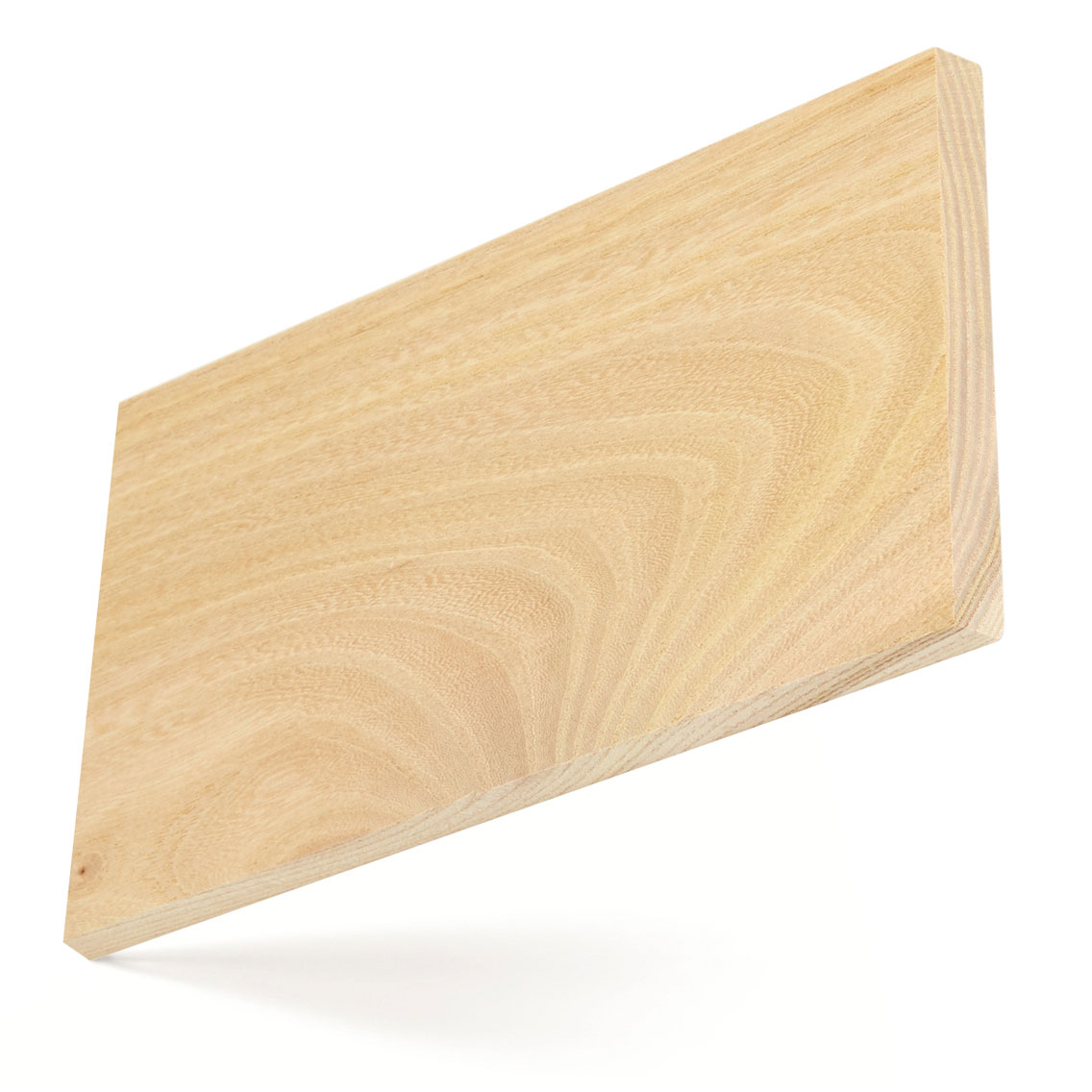American elm
American elm is a survivor of the Dutch elm disease which devastated elm populations elsewhere in the world.
Latin Name
Ulmus rubra
Other Common Names
slippery elm, brown elm, grey elm

Forest Distribution
American red elm trees are now naturally regenerating in some regions making supplies patchy. Distribution is widespread but trees are greatly influenced by site conditions. Trees are relatively small, often with divided trunks.
FOREST GROWTH
FIA data shows U.S. elm growing stock is 298 million m3, 2.0% of total U.S. hardwood growing stock. American elm is growing 5.9 million m3 per year while the harvest is 2.5 million m3 per year. The net volume (after harvest) is increasing 3.41 million m3 each year. U.S. elm growth exceeds harvest in most significant producing states with the exception of Ohio. Despite surviving Dutch elm disease American elm is still susceptible to the disease which has impacted on growth and harvest in some States.
LCA Tool
seconds
Material Availability
Elm from the USA is available in very limited commercial volumes and sawn lumber is produced mainly in 4/4" (25.4mm) thickness. As a result specifications and grades for export may be difficult to source on a regular basis. Veneer may also be available from specialist suppliers.
Wood Description
The close grain red elm may be straight or severely interlocked, with a coarse texture. The narrow sap is greyish white to light brown and the heartwood is light to dark brown in colour. Bird pecks are found in elm and are regarded as a natural characteristic and not considered a defect under NHLA Grading Rules.
Mechanical Properties
The wood of red elm is moderately heavy, hard and strong. It is stiff with excellent bending and shock resistance.
-
0.53
Specific Gravity (12% M.C.)
593 kg/m3
Average Weight (12% M.C.)
11%
Average Volume Shrinkage (Green to 6% M.C.)
89.635 MPa
Modulus of Rupture
10,274 MPa
Modulus of Elasticity
43.852 MPa
Compressive strength (parallel to grain)
3,825 N
Hardness
Oiled / Un-Oiled Appearance

Performance
- Red elm machines fairly well and it nails and screws easily. It glues well and can be sanded, stained and polished to a good finish. It dries well with minimum degrade and has little movement in performance.
- The wood is rated non-resistant to heartwood decay but is classed as permeable to preservatives.
Main Uses
American elm, when it is available is an attractive and desirable species for furniture and cabinet making and can also be used for internal joinery, flooring and panelling.